International and domestic cooperation
We will strengthen Southeast European Studies by soliciting ‘local knowledge’, bringing leading voices from the region to Regensburg to give lectures and teach, and supporting early career scholars from the region to develop new and innovative research. The Visiting Professorship Programme, International Visiting Fellowships for early career scholars, and pre-doctoral scholarships are but a few activities in this field.
A key principle is to do research about the region together with the region. We want to counter existing asymmetries in the production of knowledge, entering into dialogue with colleagues from the region, creating equitable channels of communication and exchange from which we can mutually benefit. Setting the research agenda together with our partners, we propose to concentrate on issues that have been of continuous importance to citizens in the region: economic survival, public health, migration, environmental problems, the lack of trust in public institutions, collective identities, memory and conflict, globalisation and outside interference, to name just a few.
We open up new research horizons by exploring ‘Europe’ from the fringe, bringing ‘other’ bodies of knowledge to light, which show a high degree of cultural intimacy with vernacular sites and contexts. Knowledge of the languages and acquisition of advanced language skills is a precondition for conducting good research. In addition, interdisciplinary approaches are essential, with social anthropology focusing on everyday life, history looking at long-term developments, and linguistics addressing the shifts in symbolic and semantic systems. In making vernacular and ‘decentred’ voices heard, Southeast European Studies offers ample opportunities to explore larger issues linked to processes of globalisation, causing ‘frictions’ in specific locales.
Our measures are:
- Visiting Professorships.
- International Visiting Fellowships for early career scholars.
- Seed funding for postdocs to explore new and innovative ideas for research. The funds can be used flexibly to cover, for example, archival research and fieldwork, travel, research assistance, workshops, and the like.
- Pre-doctoral scholarships, to prepare an application for PhD funding.
- Workshops, e.g., “How to prepare an excellent doctoral project”.
- Mentoring junior scholars, preparing a publication for the IOS journal Comparative Southeast European Studies (COMPSEES).
It will be a measure of our success when we manage to support burgeoning research projects to be conducted in the region by scholars residing there, helping to reduce the academic brain drain from the region and contributing to employment possibilities in the respective countries. We welcome joint research funding applications with lead applicants coming from the region.
Visiting scholars
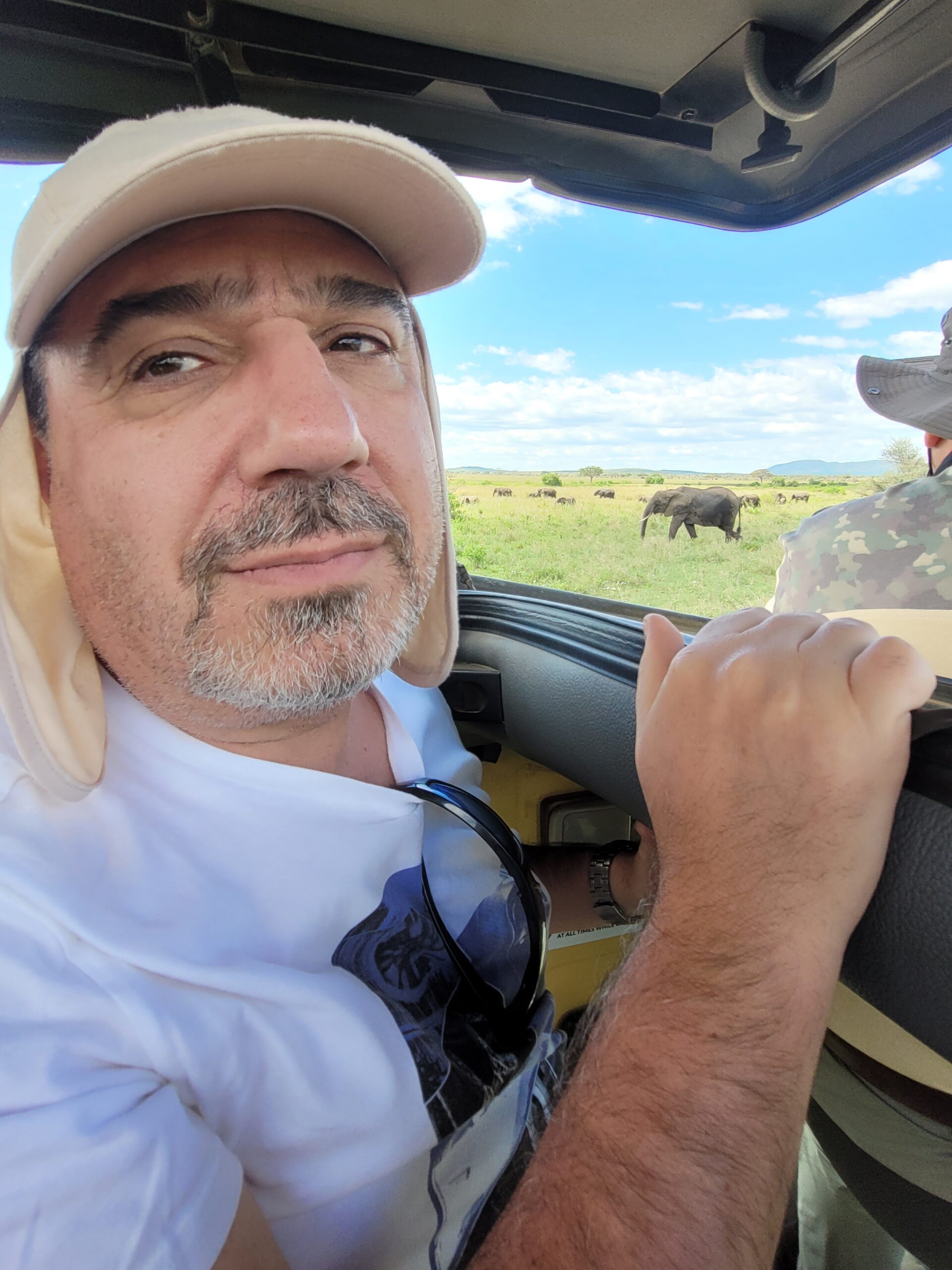
Visiting Professor Stefan Dorondel
October 2023 – February 2024
Stefan Dorondel is a Romanian anthropologist/environmental historian with a Ph.D. in History and Ethnology from the Lucian Blaga University Sibiu, Romania and a Ph.D. in Rural Studies from Humboldt University Berlin. He works for Francisc I. Rainer Institute of Anthropology and for the Institute for Southeast European Studies, both Romanian Academy of Sciences. He was affiliated with Yale University (Visiting Scholar), University of Cambridge (Visiting Fellow), Rachel Carson Center (Ludwig Maximilian University Munich) (International Fellow), Max Planck Institute for Social Anthropology Halle (Postdoctoral Fellow) and The New Europe College Institute for Advanced Studies Bucharest (Fellow). Dorondel is generally interested in environmental humanities particularly in wetlands, river history, fishing communities, forest, forestry and forest communities and the anthropology of climate change in Southeast Europe (particularly in Romania and Bulgaria). Dorondel is equally interested in STS (how scientific and technological knowledge travel) and local ecological knowledge. He published in journals such as Development and Change, Environment and History, The Canadian Journal of Development Studies and Critique of Anthropology. He is the author of Disrupted Landscapes. State, Peasants and the Politics of Land in Postsocialist Romania (Berghahn, Oxford & New York, 2016), co-author of When Things Become Property. Land Reform, Authority and Value in Postsocialist Europe and Asia (Berghahn Books, 2017) and co-editor of A New Ecological Order. Development and the Transformation of Nature in Eastern Europe (Pittsburgh university Press 2021). He is the PI of the 3-year Romanian National Science Foundation funded research project State, Communities and Nature of the Lower Danube Islands: An Environmental History (1830-2020) (https://danislandsproject.wordpress.com/press/).
Stefan Dorondel teaches two courses at our university: “The History and Anthropology of Environment” and “The History and Anthropology of Infrastructure”.
Contact: stefan.dorondel@ur.de
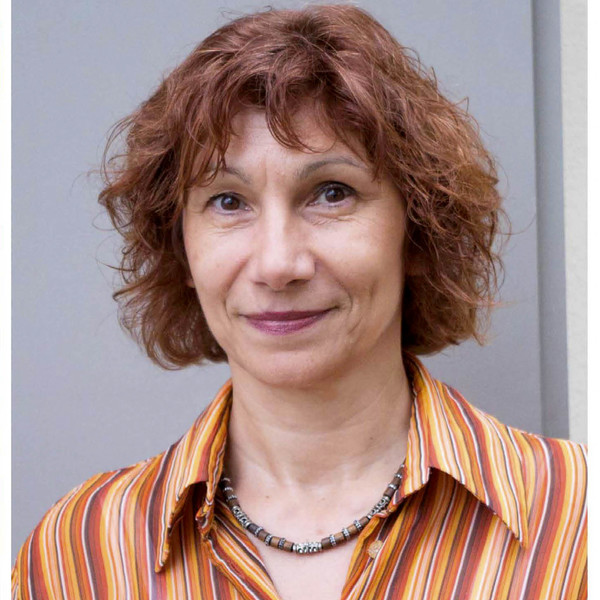
Visiting Professor Daniela Koleva
April – July 2023
Daniela Koleva is professor of oral history and memory studies at the Department for History and Theory of Culture, Sofia University. Her research interests are in the fields of oral history and anthropology of socialism and post-socialism, biographical and cultural memory, politics of memory and heritage, ageing studies, social history of medicine. She has published a monograph on the ‘normal life course’ in communist Bulgaria and a number of book chapters and articles in peer-reviewed journals. Her interest in the everyday life and life course under communism has resulted in a series of edited volumes, one of them international: Negotiating Normality: Everyday Lives in Socialist Institutions (Routledge, 2017). She is co-editor of Ageing, Ritual and Social Change: Comparing the Secular and Religious in Eastern and Western Europe (Ashgate/Routledge, 2013). Her latest book is Memory Archipelago of the Communist Past: Public Narratives and Personal Recollections (Palgrave Macmillan 2022).
Daniela Koleva teaches two courses at our university: “Toppled Statues and Re-written Histories in Eastern Europe: An Introduction to Memory Studies” and “Oral History and Biographical Methods: What to do with them and how”.
Contact: daniela.koleva@ur.de
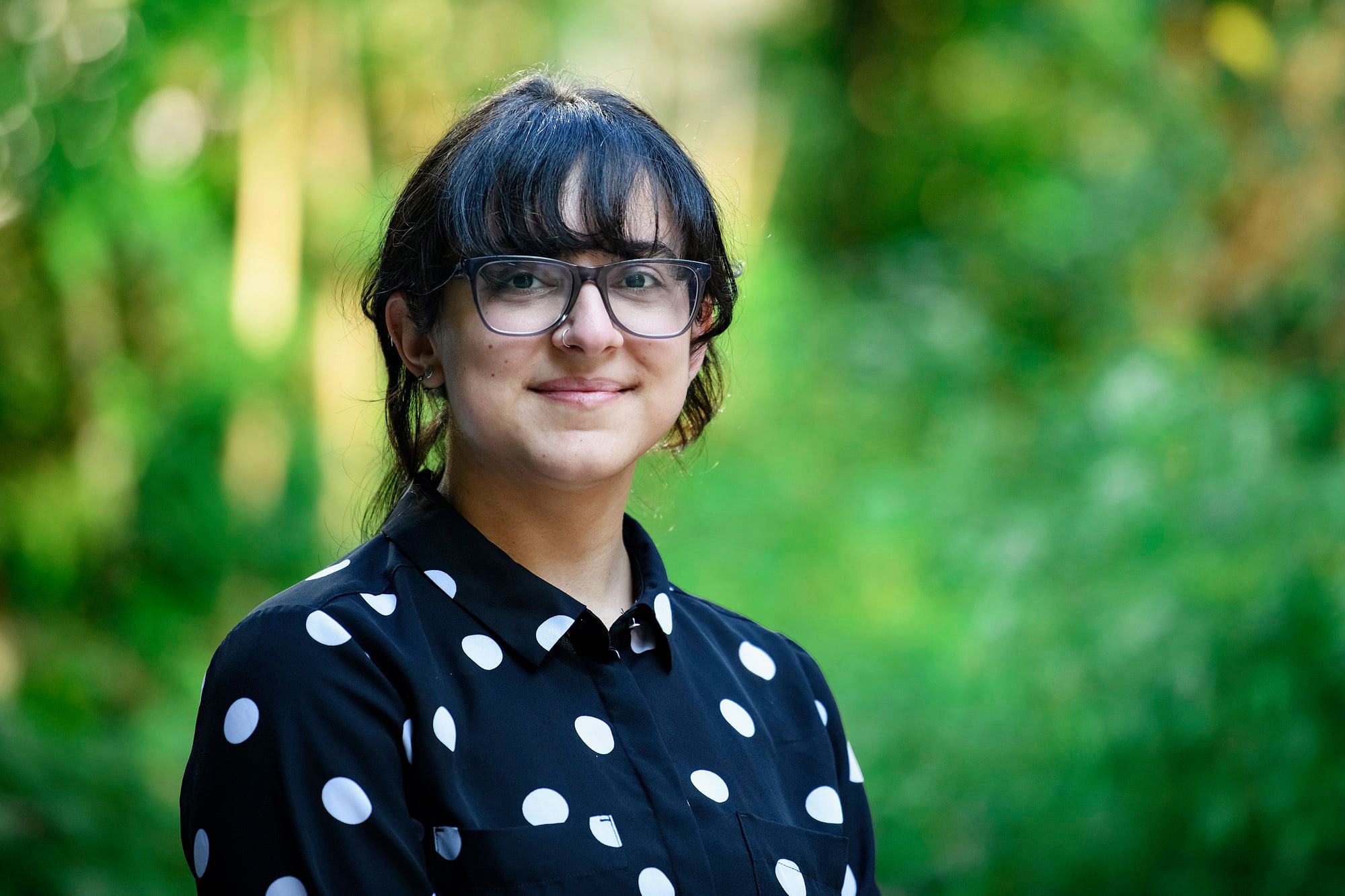
Predoc Fellow Nana Saralishvili
April – September 2024
Nana obtained her MA in Modern Georgian History from Ilia State University (Tbilisi, Georgia) in 2022, and a further MA in Comparative History from the Central European University (Vienna, Austria) in 2023. Her BA was in Liberal Arts (Ilia State University), during which she spent two semesters at Uppsala University, Sweden, through the Erasmus+ exchange programme. Her previous academic research has focused on ecumenical relations in the Soviet Union and abroad during the Cold War era and the 1990s. Nana has been engaged with various interreligious and research projects in Georgia and is currently working on the Bible Translation Project with the Georgian Bible Society.
As a predoc fellow in seeFField, she will work on a topic “Bible Translation in 19th-20th Centuries in the context of ideological and political struggles – comparative study of Georgia and Balkan States” under the supervision of Prof. Dr Klaus Buchenau.
Contact: nana.saralishvili@ur.de
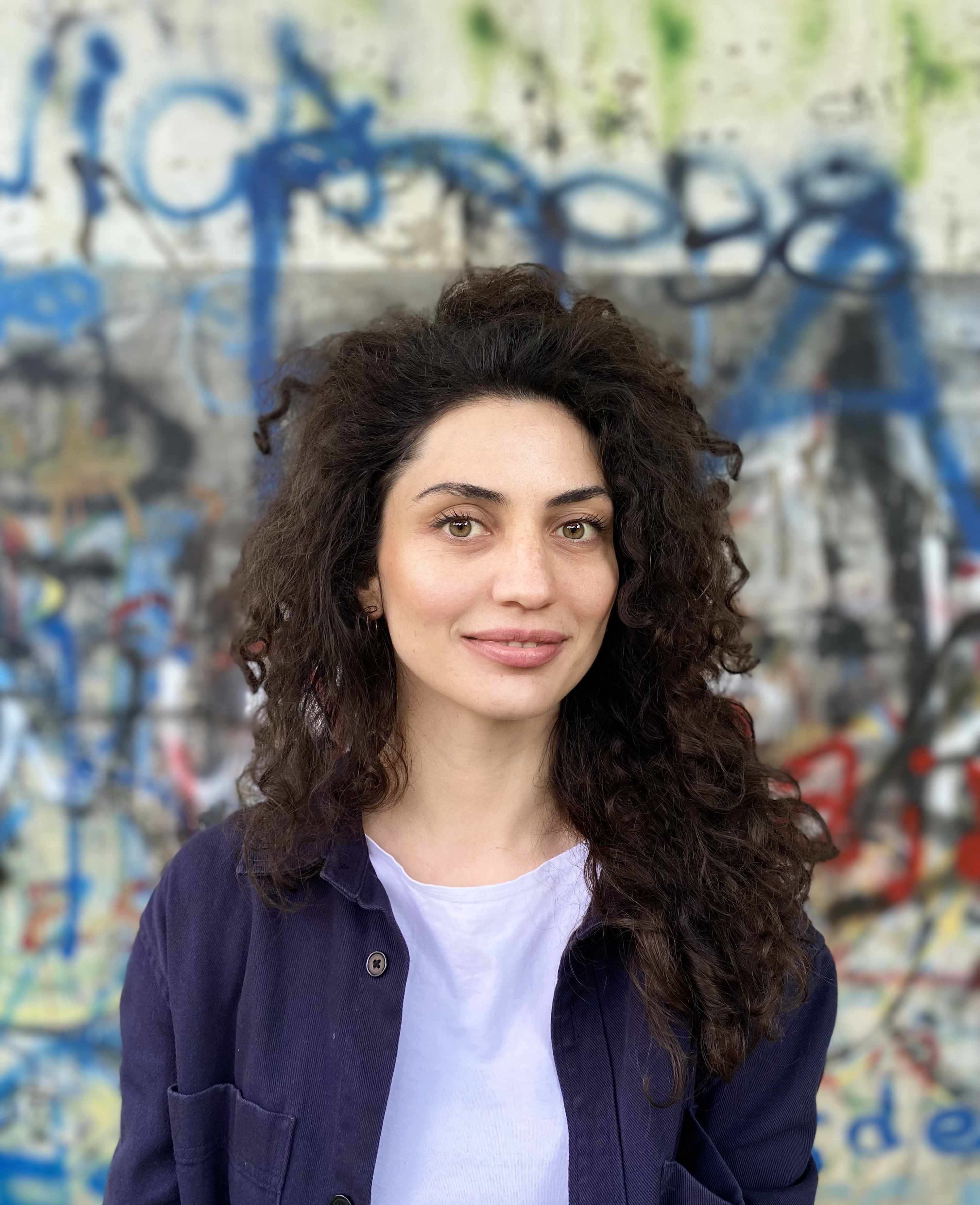
Visiting fellow Dr Rozafa Berisha
June 2024
Rozafa is a social anthropologist with an interest in the gendered, social, and affective dimensions of the state. Having previously studied at KU Leuven, she completed her PhD at the University of Manchester in 2022. The dissertation explored ethnographically how gendered futures are re-imagined and negotiated in the wake of fading societal hopes, hinged in Kosovo’s state-building project. More broadly, Rozafa´s research interests lie between anthropologies of the state and geopolitics; youth and gender; hope and affect. Her publications from a previous research project have addressed themes of social memory and acts of remembrance, and more recently gendered politics of state-building. Since 2023, she has been lecturing at the University of Prishtina and American University of Kosovo. Prior to her fellwoship at seeFField, she was a visiting scholar at Bournemouth University (UK) and afterwards she will join the Anthropology Department at the University of Illinois Urbana-Champaign (US).
During her fellowship at seeFField, Rozafa will work on a project titled “Crafting Futures in the Aftermath of Hope: Gender, State, and Affect in Kosovo”.
Contact: rozafa.berisha@uni-pr.edu

Visiting fellow Dr Dragoș Sdrobiș
May 2024
Dragoș Sdrobiș holds a PhD in history (2014) from the “George Barițiu” Institute of History Cluj-Napoca. His research topics include the history of higher education and the social history of intellectual professions in Romania during the 20th century. He is the author of the volume “Limitele meritocrației într-o societate agrară” (Iași: Polirom, 2015; Berlin: Frank&Timme, 2023 for the German version). In the 2017-2018 academic year, he was a postdoctoral fellow at New Europe College. Institute of Advanced Studies, Bucharest. Since February 2023, Dragoș is a lecturer at the University of Art and Design Cluj-Napoca.
During his fellowship at seeFField, Dragoș will work on a project titled “Pedagogy of Precision: Competing Patterns for Technical Higher Education in Romania 1860-1948″.
Contact: dragosconstantinsdrobis@gmail.com

Predoc Fellow Silvana Farruku
April – September 2023
Silvana Farruku is currently a predoctoral fellow at SeeFField, where she is writing her project proposal with the topic “ The Identity Contradiction of Being Muslim and Albanian – A Multi-layered Critical Discourse Analysis of Hate Speech and Islamophobia in Albania and Kosovo: A case study of two Muslim majority countries in Southeast Europe”. Silvana holds a Master’s Degree in Modern Linguistics and a Bachelor Degree in Language and Literature from University of Tirana. During her master’s studies she conducted two Erasmus + semesters at Humboldt University of Berlin.
Furthermore, she has been engaged in various training programs on youth activism in Albania and on the implementation of relief and social projects.
Contact: silvana.farruku@ur.de
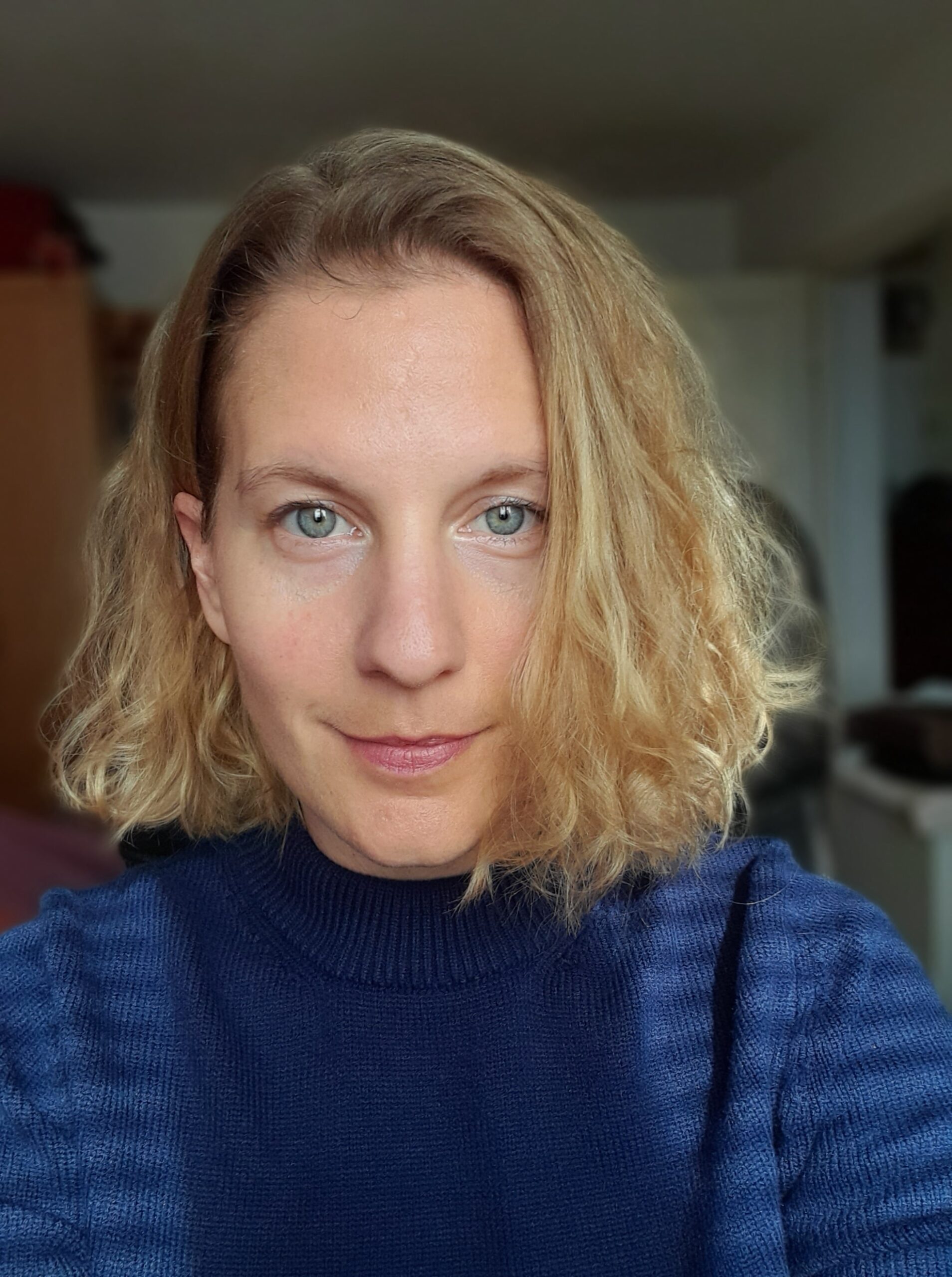
Visiting fellow Katarina Damčević
May 2023
Katarina Damčević is a PhD candidate and a junior researcher at the Department of Semiotics at the University of Tartu, Estonia. Her research focuses on hate speech and contested symbols in post-conflict societies. The title of her doctoral thesis is “Semiotics of Hate Speech and Contested Symbols: The ‘Za dom spremni’ Ustaša Salute in Contemporary Croatia”, where she analyses how the salute has been used by different mnemonic actors to reinforce a one-sided version of the past and Croatia’s post-war national identity. Katarina was a research fellow in the US-based Dangerous Speech Project and the Humanitarian Law Center in Belgrade, Serbia. She also works in the Center for Academic Writing and Communication at the University of Tartu. Her teaching and research interests revolve around writing groups and peer feedback, writing retreat facilitation, and writing and emotional well-being.
During her fellowship at seeFField Katarina will work on a project titled “Semiotics of Hate Speech: “Ready for the Homeland” in Contemporary Croatia”.
Contact: katarina.damcevic@ut.ee
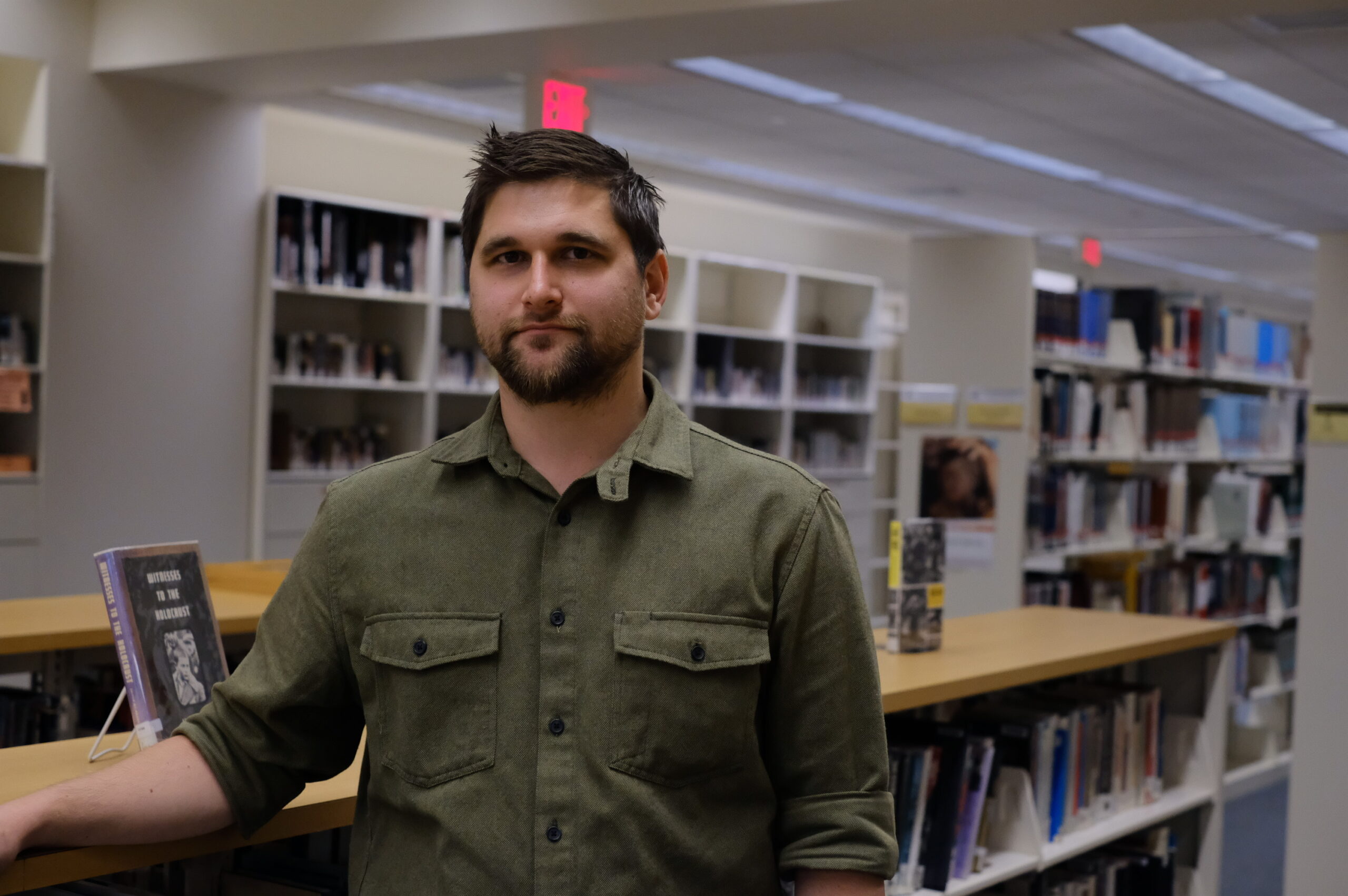
Visiting fellow Dr Hikmet Karčić
May 2023
Hikmet Karčić is a Research Associate at the Institute for the Research of Crimes against Humanity and International Law – University of Sarajevo. Bosnia and Herzegovina. and author of “Torture, Humiliate, Kill: Inside the Bosnian Serb Camp System” (University of Michigan Press, 2022). He was the 2017 Auschwitz Institute-Keene State College Global Fellow who has written extensively on genocide denial and atrocity prevention. A sought after commentator on international media outlets, his articles covering far-right extremism and mass atrocities have appeared in Haaretz, Newsweek and Foreign Policy.
During his fellowship at seeFField Hikmet will work on a project titled “The Drina River Valley: Troubled Pasts and Contested Parallel Histories”.
Contact: karcichikmet@gmail.com
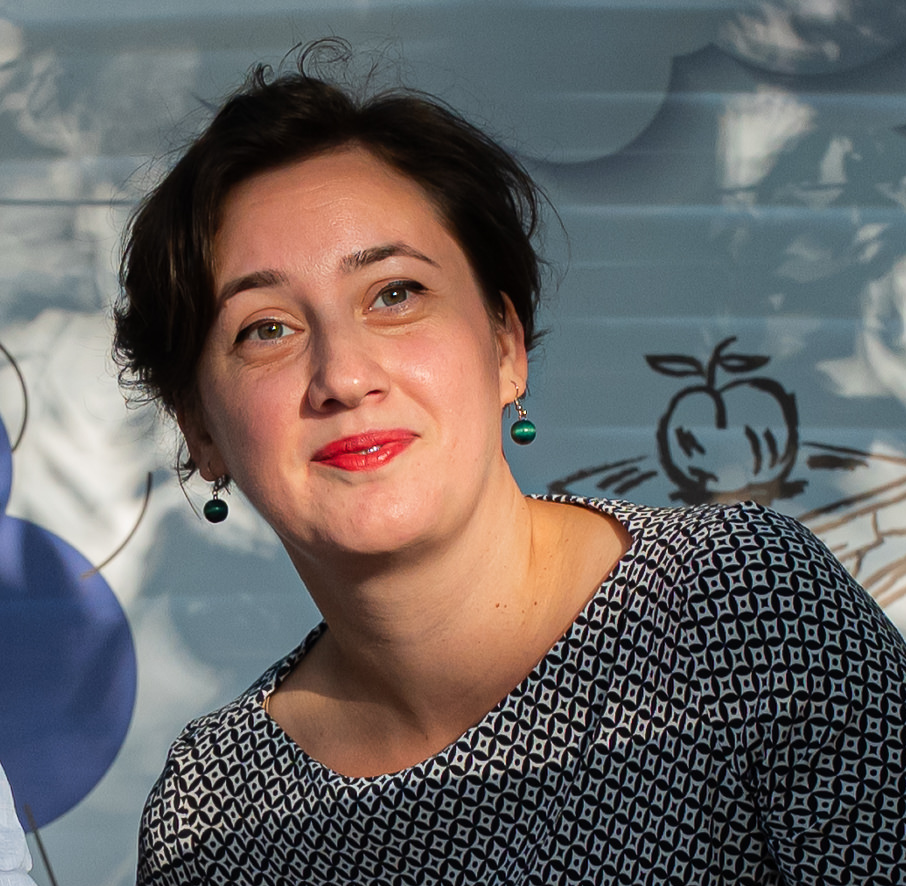
Seed funding – postdoctoral scholar Dr Oana Sorescu-Iudean
December 2023 – November 2024
Oana Sorescu-Iudean is a researcher at the Centre for Population Studies, at the Babeș-Bolyai University of Cluj-Napoca. She holds a PhD in History from the University of Regensburg (2021), where she was a member of the Graduate School for East and Southeast European Studies. She is currently serving as a representative of Babeș-Bolyai University in the EUTOPIA Young Leaders’ Academy and is a member of two COST Actions. In 2023, she held a postdoctoral grant from the STAR-BBU Institute of the Babeș-Bolyai University, which provided a data-driven approach to studying the plague in 18th century Transylvania. She has been involved in several projects integrating digital humanities approaches with East-Central European historical sources. She has recently co-authored a study on Romanian women’s networks in civil society in 19th-20th century Transylvania, and co-edited a volume entitled Elites, Groups, and Networks in East-Central and South-East Europe in the Long 19th Century (Brill Schöningh, 2022). Her current research lies at the intersection of social, economic, and medical history of early modern and modern Transylvania, focusing on the development of urban health infrastructures, the shifts in housing quality, prices, and living conditions, and the evolution of epidemic diseases such as the plague.
Her seeFField postdoctoral seed funding grant makes it possible for her to lay down the groundwork of a larger research project focusing on “Housing and Living in 18th-19th century urban Transylvania”, which aims to provide a novel, integrated perspective to this topic using various digital instruments.

Seed funding postdoctoral scholars Dr Ljiljana Pantović & Dr Jelena Kupsjak
January 2024 – December 2024
Ljiljana Pantović is a researcher at the Institute for Philosophy and Social Theory in Belgrade. She earned her PhD in medical anthropology from the University of Pittsburgh in 2019. Her primary research interests revolve around maternal healthcare, market transformations of healthcare systems, and informality.
Jelena Kupsjak is a Postdoctoral Researcher at the Department of Ethnology and Anthropology at the University of Zadar, where she obtained her PhD in anthropology in 2020. Her doctoral dissertation explored the effects of economic transition and reforms on healthcare and welfare in Croatia, focusing on the emergence of new subjectivities related to mental health.
Ljiljana and Jelena have been collaborating since 2021 through Erasmus+ exchanges and projects aimed at promoting medical anthropology in Southeast Europe. They were awarded a Wenner-Gren grant, which enabled them to organize the conference “In the Frictions: Care, Health, and Wellbeing in the Balkans” at the University of Zadar in April 2023. This conference served as an initial step towards establishing collaborations with other anthropologists in the region. They are currently working on various collaborative projects focusing on care and healthcare in Southeast Europe and have recently co-authored an article titled “Crowdfunding for Medical Expenses: Concerns and Implications.”
Their seeFField postdoctoral seed funding grant allows them to lay the groundwork for a larger research project focusing on social medicine and collaboration in public health in Southeast Europe. The aim of this project is to provide a deeper understanding of the dynamics of healthcare systems, examining the status of social medicine and the challenges they face in the contemporary neoliberal context. This includes analyzing how reforms and economic changes have impacted public health systems, as well as addressing current challenges such as staffing shortages, financial constraints, and inequalities in access to healthcare.
From the blog
Von Bukarest nach Regensburg: Die unbekannte Geschichte unserer Uni-Gebäude
Nicht nur auf der Baustelle arbeiteten die rumänischen Arbeiter Hand in Hand mit ihren deutschen Kollegen. Auch abseits des Arbeitsalltags suchten sie nach Möglichkeiten, sich in die Regensburger Gemeinschaft zu integrieren. Eine Leidenschaft verband sie dabei besonders: der Fußball.
read articleCroatia’s “Mercedes” Town: How Imotski Honours its Gastarbeiter Heritage
At the beginning of June, Croatian and German flags flew over Imotski, a town in southern Croatia, as citizens gathered for a two-day celebration. They celebrated the unveiling of the “Mercedes” monument, a life-size replica of the Mercedes 115, popularly known as “Minika”.
read articleHow to do EUrope with words in the Western Balkans
Politics can be regarded as the art of words. Words not only express views and values but also reveal potential and planned activities and incite specific actions. Discourses about EUrope are particularly revealing in that regard, not only at election time.
read articleBulgarian Cartrader
Daniel Stoyanov, aka Bulgarian Cartrader, is a rising star on the indiepop scene in Germany. Born in Bulgaria in 1986, he grew up in Germany since he was four. The text provides insights into his two key passions, music and cars. Following in his father's footsteps, he developed a liking for cars when he was young. As for his music, Bulgarian Cartrader has an exceptional talent for combining contemporary genres. His texts are autobiographical, reflecting, amongst other things, on his Bulgarian roots. Ger Duijzings has been intrigued by his alter-ego, exploring Daniel's life and music.
read article2024 Southeast European Student Symposium – Second Edition
The Southeast European Studies (SEES) Student Symposium originated as an initiative by students from the universities of Graz, Jena and Regensburg. The overarching aim of the Symposium is to provide an opportunity for networking among undergraduate and graduate students who have a subject-related connection to Southeast Europe.
read articleEin heißer Herbst auf dem Balkan. Eindrücke aus Prishtina und Skopje im Oktober 2023
Als Fellow kann man seinen Dienstort eine Zeit lang gegen einen Ort im Ausland eintauschen. Im Idealfall dient dies nicht allein der Materialsuche, sondern auch der besseren Vernetzung mit Kolleginnen und Kollegen aus der Region und allemal der Erweiterung des persönlichen Horizonts. In meinem Fall standen Prishtina und Skopje auf dem Reiseplan, zwei Hauptstädte Südosteuropas, die ich aufgrund von Archivrecherchen aufsuchte.
read articleDie Jugend der Stadt Mostar in der Nachkriegszeit
Die Brücke „Stari Most“, ein Wahrzeichen der Stadt Mostar aus der osmanischen Zeit, die sich über dem Neretva-Fluss in Bosnien und Herzegowina befindet, verbindet die zwei Stadtteile miteinander. Die Brücke wurde im Laufe des Kroatisch-Bosniakischen Kriegs zerstört. Seit dem Wiederaufbau im Jahre 2004 wird sie gerne als Symbol für die Versöhnung der Gesellschaft präsentiert.
read articleQualitative Südosteuropa-Forschung mithilfe sozialer Medien
Soziale Medien sind als Quelle für Nachrichten, Unterhaltung und Kommunikation allgegenwärtig. Mittlerweile gehören sie auch in der Wissenschaft zum Alltag dazu. Während sie in erster Linie als Plattform zur Verbreitung von Forschungsergebnissen betrachtet werden, bieten sie sich zugleich als vielseitige Datenquellen und interessanten Forschungsgegenstand an.
read articleAuf den Spuren der extremen Rechten und ihrer semiotischen Gegenwärtigkeit im Bukarester Stadtbild
Sprache beziehungsweise Kommunikation ist ein entscheidendes Mittel der Politik. So ist sie selbstverständlich geprägt durch Wettbewerb und die Konfrontation verschiedener Meinungen. In der Öffentlichkeit ist diese Konkurrenz stets zu erkennen, wie etwa in Talkshows, aber auch in Form von Vandalismus im Stadtbild. Über 10 Tage habe ich eigenhändig nationalistische Zeichen in Form von Graffitis, Stickern, Flaggen und Werbeplakaten beobachtet und in Verbindung mit ähnlichem Forschungsstand gebracht.
read articleDas „Hässliche“ im „Balkan“
Wenn man sich mit dem Begriff des „Hässlichen“ auseinandersetzt, bietet es sich an, zunächst das Konzept des „Schönen“ und die Ästhetik zu betrachten. Immanuel Kant, einer der Urväter...
read articleCroatia’s branitelji: Between heroism and oblivion
Having claimed more than 22,000 casualties, the memory of the Homeland War still looms large in the social and political landscape almost 25 years later. One issue of particular concern has to do with the branitelji, or ‘defenders’ – those citizens who are officially recognised as having fought for the Croatian armed forces in that conflict.
read articleInsights into the Upcoming Serbian Elections
As the upcoming general elections in Serbia takes center in the political stage, approximately 6.5 million voters are poised to make their voices heard on the 17th of December, marking yet another chapter in the nation's electoral history.
read article„Links“, „rechts“ und so weiter: Wie wenig unsere Begrifflichkeiten im globalen Vergleich weiterhelfen
Globale Verständigung ist ein Kunststück – vor allem dann, wenn Wörter zwar gleich aussehen, aber in jeder Region ihre eigene Bedeutung haben. So meinen die politischen Begriffe Rechts und Links in Lateinamerika nicht dasselbe wie in Südosteuropa. Die Missverständnisse, die sich daraus ergeben, haben historische Ursachen, die bis in die Kolonialzeit zurückgehen...
read articleThe Genocide of Roma in Hungary: Romani women as agents of resistance
In contrast to the persecution of Jews during the Second World War, that of Roma was not as well-organised and prepared, nor as systematic. Rather, while Roma faced constant discrimination, their erasure...
read articleReady to sail out… Reflections on the first Southeast European Studies Forum (Regensburg, 28-30 April 2023)
While in recent years, Southeast European Studies has become more sophisticated due to conceptual restructuring, it is important to acknowledge that many significant challenges lay ahead of us. Some of these were discussed during the first Southeast European Studies Forum...
read articleWhat plastics can do in Romania
In Romania, plastic waste is highly visible and engenders various reactions, from indifference to debate and action. In April 2021, Mara (woman, cultural journalist, mid-thirties), posted on Facebook a photo ...
read articleDer Westen und der Balkan. Eine Entflechtung.
Ein Schrottauto fährt los auf einer holprigen Straße in den Bergen und gleich läuft dem Fahrer auch noch ein Esel entgegen. Dazu Musik von Blechbläsern und feurige Rhythmen...
read articleLessons from the Past? Corruption in Wallachia during the Eighteenth Century and Beyond*
Historians of corruption claim that, although direct lessons cannot be derived from the past, the phenomenon of corruption can be better understood if we study it historically. On the one hand, today's activities regarded as corrupt were not specific to countries seen as corrupt. On the other hand, successful anticorruption is a historical, protracted process determined by a multitude of factors in a particular historical configuration.
read articlePovijest i značaj dana Frankofonije u Osijeku
Organizacije poput Francuske alijanse Osijek i Cercle francais d'Osijek doprinijele su promicanju francuskog jezika i kulture, te su postale važna mjesta za okupljanje francuskih državljana i lokalnog stanovništva zainteresiranog za francuski jezik i kulturu.
read articleFrom Post-Conflict Stability to Post-Conflict Degradation: The Consequences of the European Union’s Liberal Peacebuilding Approach in Kosovo
Since the Kosovo War ended on June 10th, 1999, the international community has allocated an extensive amount of official development assistance (ODA) to transform Kosovo from a territory with minimal critical infrastructure into...
read articleKasëm Trebeshina und der sozialistische (Sur)Realismus
Kasëm Trebeshina war ein albanischer Autor, Dissident und politischer Gegner von Enver Hoxha. Trotz seines eigenen kommunistischen Hintergrundes hatte er ein Problem mit der nationalen Zensurpolitik unter dem kommunistischen Regime und schrieb ein Memorandum an Hoxha, für das er verhaftet...
read articleThe Political Situation in Romania – Between Political Cliques, Power struggles, and Corruption
Romania. The country, which has been a member of the European Union since 2007, usually receives little attention in the western media. However, since the start of the Russian war of aggression against Ukraine...
read articleReady for the Homeland and the Battle of Meanings
Memory wars in Croatia are often triggered by the presence of the World War Two „Ready for the Homeland“ (Za dom spremni) Ustaša salute, from its use by right-wing politicians and war veterans...
read articleSoutheast European Student Symposium 2023
The Southeast European Studies (SEES) Student Symposium originated as an initiative by students from the universities of Graz, Jena and Regensburg. It aimed at providing an opportunity for networking among SEES students...
read articleAteizmi ideologjik në Shqipërinë totalitare dhe zbatimi i tij
Ky punim është pjesë e monografisë sime “Censura e letërsisë së përkthyer në Shqipërinë totalitare: rasti Robinson Kruzo”,...
read articleDie Frau im Hintergrund:
Als Ehefrau des albanischen Diktators Enver Hoxha bleibt Nexhmije Hoxha in der Forschung häufig unbeachtet. Dennoch verfügte sie über eine einflussreiche Stellung...
read articleRat se opet vratio
Rat u Ukrajini probudio je sjećanja na ratove u bivšoj Jugoslaviji; i u meni, jer sam bio u Jugoslaviji kad su počeli ratovi. U ožujku 2022., samo dvanaest dana nakon početka ruske invazije, primio sam telefonski poziv od Pavla, starog prijatelja iz davnih dana, kao da se duh iz prošlosti vratio da mi kaže: “Bok, rat se opet vratio!"...
read articleArtist Milica Tomić and the (Im)possibility of Building a Memorial
In November 2002, the city of Belgrade announced a sculptural design competition for a memorial dedicated to the ‘fallen fighters and victims’ of the Yugoslav wars during the 1990s. In response to this, a group of artists...
read articleSanja Iveković und das Bild der Frau
Sanja Iveković ist eine Künstlerin die seit den 70ern für ihre - damals wie heute - neuartige und provokante Kunst bekannt ist: Neuartig im Einsatz verschiedenster Medien und provokant vor allem durch ihre Themen. Sie polarisierte weltweit mit Werken zu...
read articleThe future of corruption studies
The fight against corruption ‘adorns’, as we know, the project of European integration. But in the current context of multiple crises, it may lose some of its urgency, especially when corruption helps to ‘save the day’...
read article„Eine SMS und weg war ich!“
Zwischen 2018 und 2020 wurde eine Gruppe von sechs rumänischen Bauarbeitern aus der Region Botoșani, sowie ihre Angehörigen, im Rahmen einer Masterarbeit über mehrere Monate bei ihrem Versuch...
read articleStirbt das Kyrillische in Serbien aus?
Westliche Musik und Kultur, soziale Medien und amerikanische Filme – die serbische Jugend scheint der kyrillischen Schrift den Rücken gekehrt zu haben. Möchte man den Schlagzeilen der serbischen Boulevardpresse...
read articleThe Belgrade Waterfront: Creation of the city of the future?
During the summer term 2022, students of the University of Regensburg had the opportunity to take part in a week- long excursion to Serbia. They visited the capital...
read articleSerbiens Titelseiten – Abbilder umkämpfter Pressefreiheit
Pressefreiheit gilt als einer der zentralen Indikatoren für eine demokratische Gesellschaft. Aus gutem Grund, unabhängige Berichterstattung über...
read articleStraßenschlachten mit Aerosol
Die Stadt Belgrad ist bunt. Es liegt der Geruch von Farbe in der Luft und selbst dem ungeschulten Auge wird schnell deutlich, dass es kaum eine Hauswand gibt, die in ihrem Originalzustand belassen wurde...
read article